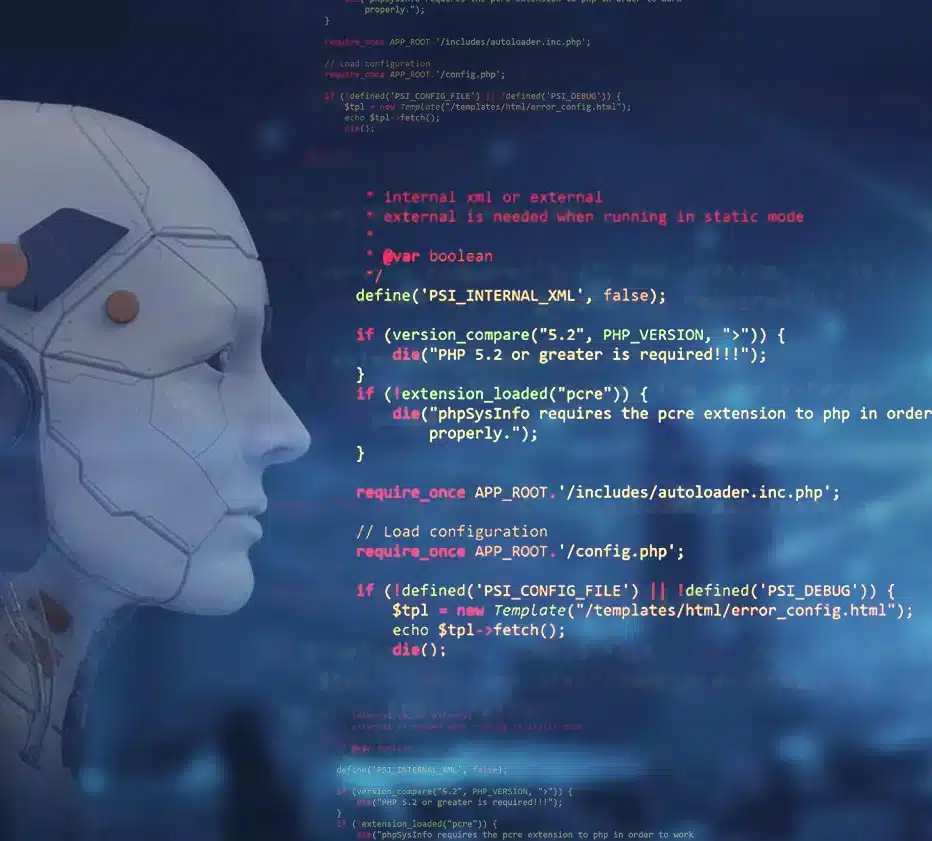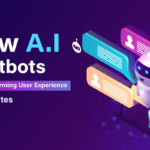Artificial intelligence is revolutionising the way software development agencies work. AI is constantly advancing, helping to uncover a brand-new paradigm for technological invention from coding to software deployment.
The software development lifecycle is being accelerated by algorithm-based machine learning, and AI is assisting programmers in streamlining software development workflow at every stage.
We can look forward to major developments in the future as AI brings about disruptive changes for software developers. The industry should experience a significant increase in productivity, quality, and speed as AI redefines how developers work and how their code is created and managed.
Artificial intelligence (AI) is the ability of computer programs to perform cognitive and reasoning tasks at the same level as humans, including reasoning, perception, and generalization. It is expected that the computer will be able to sense its environment and respond accordingly.
AI algorithms can aid in automation QA (quality assurance) and improve user experience in addition to project planning. According to a recent study, most software development services use AI enhancements that increase developer productivity by a factor of ten.
Here are some examples of how AI can support the software development and deployment procedures in your business by automating a variety of mental and manual tasks.
Decision-Making in Crucial:
Because it is automated and requires less human engagement, AI has a significant impact on strategic decision-making. AI has the power to revolutionise decision-making by cutting down on the time spent discussing whether to invest in particular features and products. Your AI will be able to judge the performance of new software and reduce risk if it has been trained using the positive and negative experiences of prior software.
All decisions will be based on analytics, which will cause a revolution in the way decisions are made during the software development process. Computers will be able to amplify human intelligence by helping people make wiser decisions as cloud computing and data storage expand quickly every year.
Better decision-making based on analytics and past behavior can reduce risks and the costs associated with them. AI decision-making will also help to eliminate biases and errors made by humans. Data can be a useful tool for making well-informed decisions. Machine learning allows computers to reach conclusions by gathering, analyzing, and using data.
Scale development:
The performance indicators for software delivery can be used to assess how DevOps will change after AI is ingrained in every facet of it. The frequency of deployments, lead times for changes, and service restoration times are important performance metrics that are time-based. Utilizing machine learning or deep learning, many processes—especially the testing of software—can be expedited. AI can run tests automatically rather than requiring quality assurance analysts to do so manually. By doing this, more potential outcomes are explored while also saving time. AI is actually crucial to the process, given how likely errors are when quality assurance is done manually. AI also enables a computer to perform rapid and precise testing, lowering the failure rate and accelerating development.
Artificial Intelligence must be used by software developers to optimise operations, cut waste, and transfer time-consuming manual tasks to a machine that can complete them more quickly and accurately. Moreover, deployments will be automatically verified by a hyperautomation platform supported by machine learning, which will save even more time. Additionally, AI can enhance and accelerate coding accuracy.
Predicting behaviours:
For budget forecasting, there are various tools available. You may estimate how much processing power your software will require and how much it will cost based on a few very basic variables. Similar systems can be created to forecast budgeting with more accuracy. If you are creating a web application, for instance, and you know the traffic patterns of your user base, you may have a good notion of how much bandwidth you will require on a monthly basis.
Another area that AIs excel at is predictive scheduling. Consider a virtual assistant that can examine your infrastructure and forecast when you will need to scale, when you will need to reboot your servers to improve performance without harming your user base, or an AI that handles disc balancing automatically. There are no boundaries.
Provide accurate estimations:
Software developers are famous for being unable to give accurate estimates on costs and timelines. You can acquire accurate estimates from AI that has been trained on data from previous projects so that you can forecast the amount of time, effort, and money needed. You can educate AI to learn expertise and context, which are necessary for making a reasonable forecast.
It is challenging to foresee the challenges you’ll encounter and how much they will push back deadlines without AI. These details can help a company decide which initiatives to support and which to reject. When you properly inform customers about software delivery, it benefits your business and increases customer retention.
Link to Real-Time Reaction
To enhance the user experience, most video conferencing software includes real-time user feedback within the interface. Using real-time feedback from AI-enabled software development tools, you can change how customers interact with and use your product.
To track a user’s interactions with a specific platform, machine learning algorithms can be created. AI can be used to create dynamic software experiences, provide ever-changing content, and provide statistics on which on-page elements could be improved.
Continuous feedback can guarantee that there is no to little downtime for the client and that the software is more accessible if issues are dealt with immediately via a feedback loop.
Business apps developed by your modern software company will soon greatly benefit from AI, and you can enhance your software development process by incorporating it into as many steps as you can. Software engineers will soon be expected to use AI. It has already stepped into the limelight in a way that has never been done before, and it has no intention of doing otherwise. Whether it’s a chatbot, an office phone system with AI, or a decision-making AI, we won’t be able to function without AI any longer.
The rate of change in the software development environment is too fast for us to keep up with. If you want to keep up with the competition, you must be knowledgeable about new technology and quick to adopt it.






